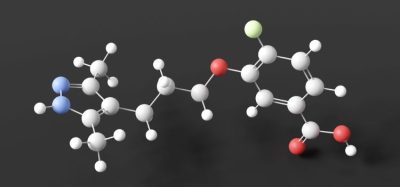Project worth £3.1mn to develop advanced controls for biopharma manufacturing
Posted: 30 July 2021 | Hannah Balfour (European Pharmaceutical Review) | No comments yet
A collaborative project will develop automated manufacturing controls for biologics such as antibodies, viral vectors and vaccines.


A new UK-based consortium has begun work to develop automated manufacturing controls for use in the manufacture of biologics. The project, worth £3.1 million, is contributing to efforts to quickly and reliably develop and manufacture transformative drugs and therapies at scale.
The consortium consisting of BiologIC Technologies, Biopharm Services, the Centre for Process Innovation (CPI), Pall Corporation and SCIEX will address some of the manufacturing challenges faced in the pharmaceutical industry by increasing flexibility and sustainability, reducing batch failures and paving the way towards real-time product release of biopharmaceutical drugs. According to CPI, this would reduce manufacturing costs and improve product quality, lowering costs cost the UK’s National Health Service (NHS), thus increasing patient access to life-changing drugs.
The project focuses on the manufacture of a monoclonal antibody (mAb) but is flexibly designed so that the approach could be applied to other therapies, such as vaccines and viral vectors.
The consortium will develop a prototype advanced control strategy that is independent of equipment or control system suppliers and overlay this strategy onto an existing small-scale continuous bioprocessing module operating at CPI.
Under the collaboration, Pall Corporation and SCIEX have contributed equipment and process technology and experts at CPI will design and implement the automation strategy. BiologIC Technologies will deploy its full stack industry 4.0 technology platform to develop a smart fluidic system with integrated in-line sensing that will enable continuous flow between unit operations. The resulting continuous bioprocessing module will then be linked to Biopharm Services’ BioSolve Process cost modelling platform to optimise it in terms of cost of goods, facility throughput, scalability and environmental sustainability.
Harvey Branton, Technology Lead - Biologics, CPI, said: “The automated control of biologics manufacturing needs to transition from proof of concept to implementation in UK facilities; this project will incorporate new process analytical tools that can be actively promoted by consortium partners.”
Andrew Sinclair, President of Biopharm Services, added: “The automation and control strategy principles developed in this project are not only amenable to traditional biopharmaceuticals but can also be applied to the next generation of virus-based vaccines, messenger RNA (mRNA) vaccines, gene therapy treatments and targeted biotherapeutics. By clarifying the business case using BioSolve Process and actively sharing practical control strategies, the consortium will advance UK biopharmaceutical manufacturing.”
Related topics
Biologics, Bioprocessing, Bioproduction, Drug Manufacturing, Informatics, Lab Automation, Research & Development (R&D), Technology, Therapeutics, Vaccines
Related organisations
BiologIC Technologies, Biopharm Services, Centre for Process Innovation (CPI), Pall Corporation, Sciex









